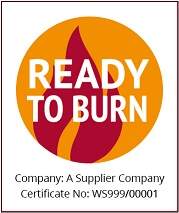Burn better: Making changes for cleaner air

Consider what you burn
You might not realise it, but burning wood and other solid fuels can produce a lot of harmful air pollution both inside and outside of your home. Burning the wrong fuels at home, such as wet wood or some types of coal, releases harmful smoke into the air which, when mixed with other emissions in your chimney, can affect your health.
There are also rules about what you can and cant burn in the borough. Read further details of the rules on wood burning and smoke control areas.
Open fireplaces are the most polluting. The most efficient stoves produce up to 90% less pollution than an open fire and up to 80% less than a stove that is more than 10 years old. Read this list of the cleanest stoves.
Maintaining your stove or fireplace, sweeping your chimney and using the right fuel can reduce air pollution.
It’s important to make sure that wood is dry and well-seasoned (lower moisture content) to prevent nuisance smoke.
Storing your wood correctly can help keep it dry, make sure it does not get damp from the rain or damp in the ground.
The Department for Environment, Food & Rural Affairs (DEFRA) Ready to Burn certification scheme is run by HETAS and Woodsure, both non-profit organisations supporting cleaner and safer choices for the use of biomass and other solid fuels, appliances and associated technologies. You should use Ready to Burn wood fuel as it has a moisture content of less than 20% and is suitable for immediate use.
DEFRA's advice for burning better.

